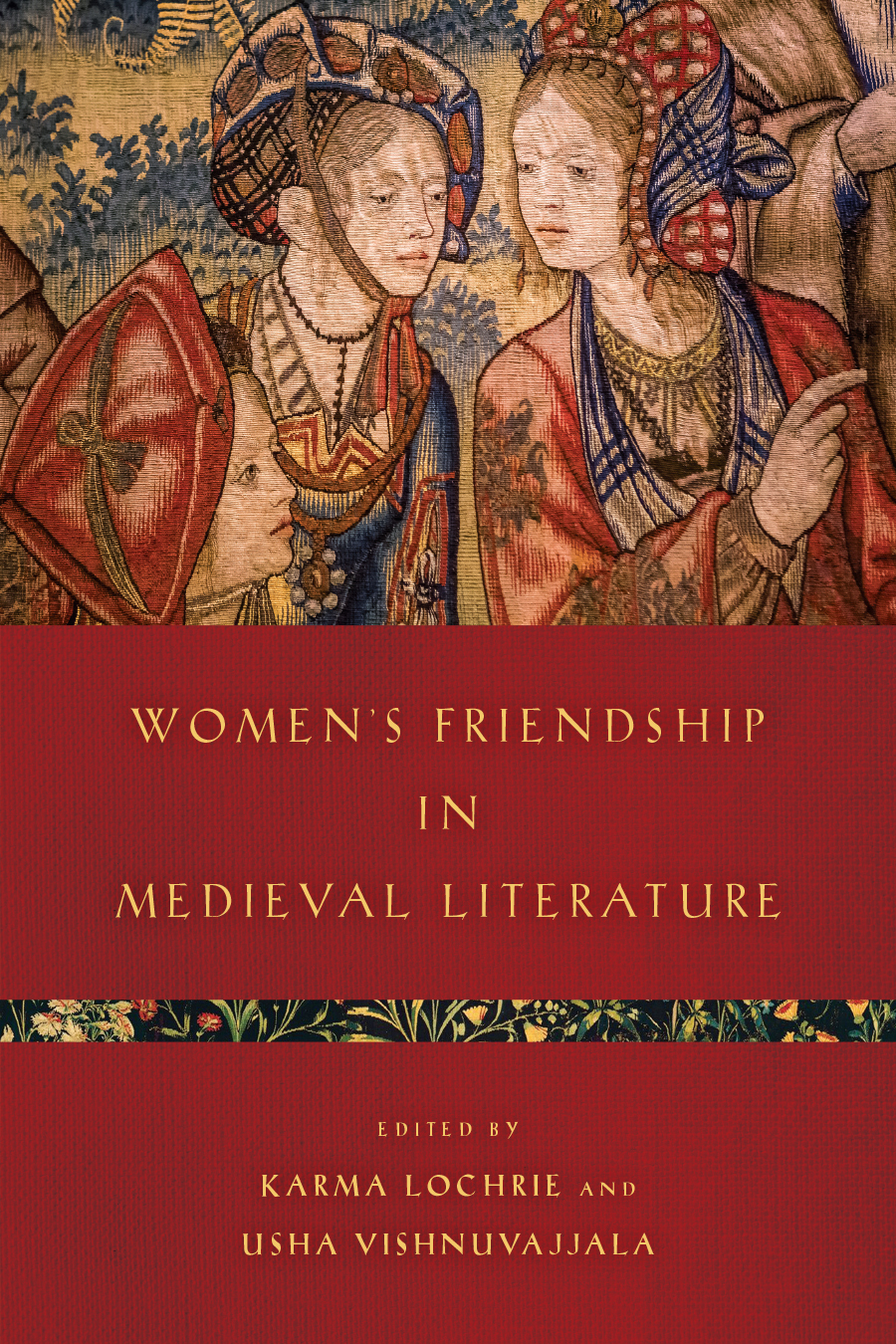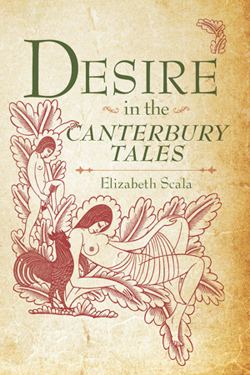“Important and urgent … Women’s Friendship in Medieval Literature is an all-around outstanding collection sure to serve as a resource for medievalists, feminists, and cultural historians for many years to come.” —Lynn Shutters, Journal of English and German Philology
“This wonderful unification of female academic voices, spearheaded by Karma Lochrie and Usha Vishnuvajjala, is profound, intriguing and often emotive. … a beautiful ode to female friendship, both modern and medieval. Lochrie and Vishnuvajjala have created the foundations for a whole new field of research, while also aiming to shape our understanding of ourselves and our histories in a post-pandemic world.” —Emma Bairstow, Forum for Modern Language Studies
“Women’s Friendship in Medieval Literature is one of those rare collections in which each article not only stands on its own as a provocative piece of scholarship but also contributes to an integrated whole. The contributors, that is, have become collaborators in a shared argument, so that the volume models the social and textual work of women’s friendship that it explores.” —L.M.C. Weston, Modern Philology
“Women’s Friendship in Medieval Literature offers the reader a range of innovative ways for identifying and analysing textual evidence and representations of comradeship and camaraderie between women in the Middle Ages. These readings often involve being open to finding links between the past and the present and to reading the absences and gaps in the narratives.” —Diane Watt, Modern Language Review
In Women’s Friendship in Medieval Literature, Karma Lochrie and Usha Vishnuvajjala bring together established scholars and new voices to illuminate a previously understudied but consequential element of life in the Middle Ages. Contributors focus on representations of women’s friendships in medieval European literature and their afterlives both to historicize them and draw out the finer nuances of the multitude of forms, affects, values, and ethics that emerge within those friendships. This volume examines works by Chaucer, Gower, Malory, Marie de France, female saints, and late-Middle Scots poets alongside lesser-known late medieval lyrics and Middle English romances to chart women’s friendships and their many and sometimes conflicting affinities with the cultural categories of gender, religion, politics, and sexuality. In addition to exploring the parameters of female friendship across a range of texts and historical contexts, contributors evaluate the political, religious, and civic structures negotiated in public and private and engage with the long history of theory and philosophy on friendship. The result is a theoretical and historical rubric for the future study of women’s friendships in medieval texts and beyond.
Contributors:
Penelope Anderson, Andrea Boffa, Jennifer N. Brown, Christine Chism, Melissa Ridley Elmes, Laurie Finke, Carissa M. Harris, Lydia Yaitsky Kertz, Clare A. Lees, Karma Lochrie, Gillian R. Overing, Alexandra Verini, Usha Vishnuvajjala, Stella Wang
“This collection offers both accessible and theoretically complex iterations of female friendship that appeal to a broad readership, and each successive chapter builds on and often responds to the previous one such that we might best conceive of this book as a well-marked map of female friendship in medieval literature.” —B. Skye Oliver, Medieval Feminist Forum
“The significance of Women’s Friendship in Medieval Literature cannot be overstated: it gathers some of the freshest voices in medieval literary studies to present some of the most transformative and inspiring work on women and gender to date.” —Holly A. Crocker, author of The Matter of Virtue: Women’s Ethical Action from Chaucer to Shakespeare
“Lochrie and Vishnuvajjala have put together an exciting collection of essays about female friendship. Readers looking for feminist interventions in medieval studies will find Women’s Friendship engaging and thought provoking.” —Rebecca Krug, author of Margery Kempe and the Lonely Reader
Karma Lochrie is Provost Professor of English at Indiana University. She is also the author Heterosyncrasies: Female Sexuality When Normal Wasn’t and Nowhere in the Middle Ages, among others.
Usha Vishnuvajjala is Lecturer at Cardiff University. She is also the author of Feminist Medievalisms.
Contents
Acknowledgments
Introduction
Karma Lochrie and Usha Vishnuvajjala
Part 1 Varieties of Spiritual Friendship
Chapter 1 Female Friendships and Visionary Women
Jennifer N. Brown
Chapter 2 On Love and Letters: Spiritual Friendship in Marie de France
Stella Wang
Chapter 3 Friendship and Resistance in the Vitae of Italian Holy Women
Andrea Boffa
Chapter 4 Sisters and Friends: The Medieval Nuns of Syon Abbey
Alexandra Verini
Part 2 Feminine Space, Feminine Voices
Chapter 5 “Amonge maydenes moo”: Gender-Based Community, Racial Thinking, and Aristocratic Women’s Work in Emaré
Lydia Yaitsky Kertz
Chapter 6 Women’s Communities and the Possibility of Friendship in the Stanzaic Morte Arthur
Usha Vishnuvajjala
Chapter 7 Female Friendship in Late Medieval English Literature: Cultural Translation in Chaucer, Gower, and Malory
Melissa Ridley Elmes
Part 3 New Modes of Female Friendship
Chapter 8 Cultivating Cummarship: Female Friendship, Alcohol, and Pedagogical Community in the Alewife Poem
Carissa M. Harris
Chapter 9 “All These Relationships between Women”: Chaucer and the Bechdel Test for Female Friendship
Karma Lochrie
Chapter 10 The Politics of Virtual Friendship in Christine de Pizan’s Book of the City of Ladies
Christine Chism
Chapter 11 Prosthetic Friendship and the Theater of Fraternity
Laurie Finke
Chapter 12 Conversations among Friends: Ælfflæd, Iurminburg, and the Arts of Storytelling
Clare A. Lees and Gillian R. Overing
Afterword Friendship at a Distance
Penelope Anderson
List of Contributors
Works Cited
Index




